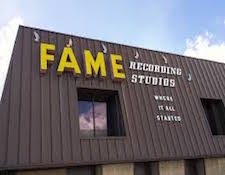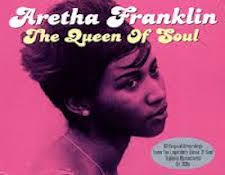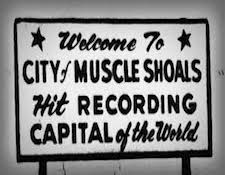It’s the time of year for saving money!
Ask most people to name a city where music is frequently recorded and New York or Los Angeles would likely be named first. For country fans the logical response would be Nashville. Asking a blues fan may yield Chicago as an answer, or Miami to a lover of Latin sounds. There is, however, a place, clearly off the beaten track, that has given birth to some of the the most recognizable music of the modern area.
 Located just off Highway 72 and nested along the banks of the Tennessee River, Muscle Shoals, AL hardly seems like a place where not only icons of music have recorded, but a place where iconic music was created.
Located just off Highway 72 and nested along the banks of the Tennessee River, Muscle Shoals, AL hardly seems like a place where not only icons of music have recorded, but a place where iconic music was created.
Rick Hall was a local boy who grew up so desperately poor his home didn’t even have indoor plumbing. By 1959, Hall, along with two others, came up enough money to open a recording studio called Fame Studios. Hall had hired several session players to play the music but he had a problem. He had a few popular releases under his belt but he needed a major hit. He needed something spectacular to generate income to keep his fledgling business alive. As fate would have it, working in a nearby hospital was the answer to Hall’s problem.
He sang to patients as a way to keep them entertained. He always laughed when anyone told him he would someday become famous. He was, after all, just working in a hospital and also the cotton fields. After hearing about his remarkable voice, Rick Hall invited this man to the studio. And the first song Percy Sledge ever recorded was to become one of the the most recognizable records ever made. That song was, of course,”When A Man Loves A Woman.”
 Having spent five years with Columbia Records, and after leaving the safe confines of Gospel music, her R&B career had yet to really take off. Jerry Wexler, the legendary co-founder of Atlantic Records, signed and brought her to Muscle Shoals. What would occur was not only a career but an iconic status in the making. Many may know her as the Queen of Soul, the world knows her as Aretha Franklin.
Having spent five years with Columbia Records, and after leaving the safe confines of Gospel music, her R&B career had yet to really take off. Jerry Wexler, the legendary co-founder of Atlantic Records, signed and brought her to Muscle Shoals. What would occur was not only a career but an iconic status in the making. Many may know her as the Queen of Soul, the world knows her as Aretha Franklin.
Stories like these two became commonplace for Fame and Muscle Shoals.
It should also be noted that this was the South in the the early 1960’s. The segregated South. The South that Governor George Wallace proclaimed “segregation today, segregation tomorrow, and segregation for ever.” Yet just about 120 miles from the University of Alabama, where Wallace made his proclamations, Fame Studios had both African American as well as White musicians who not only collaborated and played music together, they were good friends. In fact, Aretha Franklin’s first five albums for Atlantic Records were recorded at Fame with a predominately white band – something completely unheard of at the time in R&B.
As Fame Studios grew in reputation, so did their attraction. Soon enough, artists from all over the country were traveling to Muscle Shoals to record music. Bands from the UK and Europe, always aware of the music scene in the US, started to take notice as well. When the Rolling Stones (http://www.rollingstones.com ) arrived to record they called the place “spiritual.” Those sessions produced “Wild Horses” and “Brown Sugar” as the two predominate hits. They found it refreshing that the local folk didn’t really know who they were – except they weren’t locals and had funny accents.
 Muscle Sholas also helped give birth to a whole sub genre of music. Two brothers, both gifted musicians, were in Los Angeles and hadn’t yet made a name for themselves. After leaving LA and returning to their Florida roots, and eventually winding up in the Muscle Shoals music scene, they not only contributed to hits being made at Fame, through their own music they helped create what became known as Southern Rock & Roll. The two brothers were named Duane and Gregg – the band they formed was known as the Allman Brothers.
Muscle Sholas also helped give birth to a whole sub genre of music. Two brothers, both gifted musicians, were in Los Angeles and hadn’t yet made a name for themselves. After leaving LA and returning to their Florida roots, and eventually winding up in the Muscle Shoals music scene, they not only contributed to hits being made at Fame, through their own music they helped create what became known as Southern Rock & Roll. The two brothers were named Duane and Gregg – the band they formed was known as the Allman Brothers.
Close on the heels of the Allman Brothers came the second big name to help cement the “Southern Rock” genre. Originally formed in 1964, they toured under names like “My Backyard,” “Noble Five” and One Percent.” In 1969 they changed their name to Lynyrd Skynyrd. After touring for a while with The Who, they found their way to Muscle Shoals. After the release of “Sweet Home Alabama” and “Free Bird”, the rest was history. In fact, in “Sweet Home Alabama”, there is a line in the song: “Now Muscle Shoals has got the Swampers.” In case you didn’t know, the “Swampers” were the house band at Fame Studios, and later their own studio, and the the musicians responsible for many of Muscle Shoal’s early hits.
These two bands, along with the Marshall Tucker Band from Spartanburg, SC, helped literally create the Southern Rock & Roll sound. While not totally responsible, Muscle Sholas played a significantly large part in the creation of “Southern Rock.”
 The Yuchi Indians who first settled in the Muscle Shoals area called the Tennessee River “Nunnuhsae,” which translates to “The Singing River.” There seems to be associated with this small rural community in Alabama, populated mostly by cotton fields and sawmills, a certain reverence to music. Felt by not only the locals, but also by the many musicians who have recorded there, Muscle Shoals is a musically reverent place, located in what perhaps is a most unlikely venue to record music.
The Yuchi Indians who first settled in the Muscle Shoals area called the Tennessee River “Nunnuhsae,” which translates to “The Singing River.” There seems to be associated with this small rural community in Alabama, populated mostly by cotton fields and sawmills, a certain reverence to music. Felt by not only the locals, but also by the many musicians who have recorded there, Muscle Shoals is a musically reverent place, located in what perhaps is a most unlikely venue to record music.
As audiophiles, we frequently talk about “seeing deeper into the music.” We look for what may be described as a “magical,” or certainly an emotional connection to the music our systems produce. Personally, I look to be “wowed” – that sense of connection that produces a feeling of disbelief. I’ve never once, however, given even a passing thought as to what the artists who created this music felt and if, just perhaps, they were looking for the same thing. I can’t see that as anything but an error of omission on my part.
Looking at the width and breadth of music recorded and produced in Muscle Shoals is staggering. Now a place of national recognition, Muscle Shoals continues to be a destination where musicians come to record. They may be possibly looking to capture some of the magic that brought forth “When A Man Loves A Woman.” Or maybe they are hoping to feel the musical reverence felt by so many that preceded them. Or maybe, somehow, they are simply, inexplicably, drawn to the river that sings.





